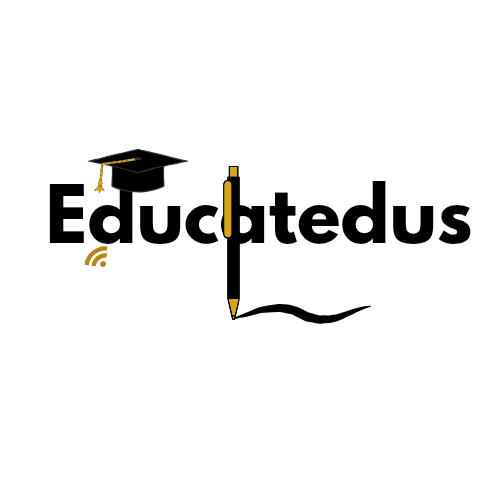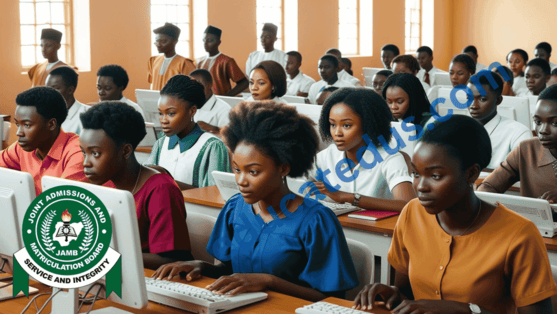JAMB Literature in English Recommended Texts 2025/2026 for UTME Candidates. Discover official drama, poetry, and prose texts, essential textbooks, study strategies, and expert tips for JAMB UTME success in Literature.
JAMB Literature in English Recommended Texts 2025/2026 for UTME Candidates
The Joint Admissions and Matriculation Board (JAMB) has released the official list of recommended Literature in English texts for the 2025/2026 academic session. These carefully selected texts cover the three major literary genres: Drama, Poetry, and Prose, encompassing both African and non-African works.
Understanding these recommended texts is crucial for JAMB UTME candidates, as Literature in English remains a popular subject choice for arts and humanities students. The texts are designed to expose students to diverse literary traditions, themes, and writing styles that reflect both local and global perspectives.
Read Also: EKSU Releases Admission List for 2025/2026 Session
Official JAMB Literature in English Texts 2025/2026
Drama Texts
| Category | Text Title | Author |
|---|---|---|
| Shakespeare | A Midsummer Night’s Dream | William Shakespeare |
| African Drama | Let me Die Alone | John K. Kargbo |
| African Drama | The Lion and the Jewel | Wole Soyinka |
| Non-African Drama | Look Back in Anger | John Osborne |
| Non-African Drama | Fences | August Wilson |
Poetry Texts
| Category | Text Title | Author |
|---|---|---|
| African Poetry | Black Woman | Leopold Sedar Senghor |
| African Poetry | The Leader and the Led | Niyi Osundare |
| African Poetry | The Grieved Lands | Agostinho Neto |
| African Poetry | The Song of the Women of my Land | Oumar Farouk Sesay |
| African Poetry | Raider of the Treasure Trove | Lade Wosornu |
| African Poetry | A Government Driver on his Retirement | Onu Chibuike |
| Non-African Poetry | The Good-Morrow | John Donne |
| Non-African Poetry | Caged Bird | Maya Angelou |
| Non-African Poetry | The Journey of the Magi | T.S. Eliot |
| Non-African Poetry | Do not Go Gentle into the Good Night | Dylan Thomas |
| Non-African Poetry | Binsey Poplars (Felled 1879) | G.M. Hopkins |
| Non-African Poetry | Bat | David H. Lawrence |
Prose Texts
| Category | Text Title | Author |
|---|---|---|
| African Prose | Second Class Citizen | Buchi Emecheta |
| African Prose | Unexpected Joy at Dawn (2018 Edition) | Alex Agyei-Agyiri |
| Non-African Prose | Invisible Man | Ralph Ellison |
| Non-African Prose | Wuthering Heights | Emily Bronte |
Essential JAMB Literature Textbooks 2025/2026
| Textbook Title | Author/Editor | Purpose |
|---|---|---|
| Naked Soles | Gbemisola | Poetry collection |
| The Penguin Book of English Verse | Hayward, J. | English poetry anthology |
| New Poetry from Africa | Johnson, R. | African poetry collection |
| Oxford Anthology of English Literature, Vol. II | Kermode, F. | Comprehensive literature guide |
| West African Verse | Nwoga, D. | Regional poetry anthology |
| A Selection of African Poetry | Vincent, T. & Senanu, K. E. | African poetry compilation |
| Poems of Black Africa | Soyinka, W. | African poetry collection |
Recommended Literature Critical Texts
| Critical Text Title | Author | Edition | Purpose |
|---|---|---|---|
| A Glossary of Literary Terms | Abrams, M. H. | 4th Edition | Literary terminology |
| Dictionary of Literature | Emeaba, O. E. | Latest Edition | Literary reference |
| Understanding Unseen | Murphy, M. J. | Current Edition | Analysis techniques |
Study Strategies for JAMB Literature 2025/2026
Success in JAMB Literature in English requires systematic preparation and deep understanding of the prescribed texts. Begin by reading each text thoroughly, taking notes on major themes, character development, and literary devices used by the authors.
Focus on understanding the cultural and historical contexts of both African and non-African works. This background knowledge will help you appreciate the nuances in the texts and answer contextual questions effectively during the examination.
Practice analyzing poetry by paying attention to imagery, rhythm, rhyme schemes, and figurative language. For drama texts, understand character relationships, plot development, and stage directions. Prose analysis should focus on narrative techniques, characterization, and thematic concerns.
Importance of Literature in English for University Admission
Literature in English serves as a gateway subject for numerous university courses including English Language, Theatre Arts, Mass Communication, Linguistics, and other humanities programs. Many universities require strong performance in Literature for admission into these competitive programs.
The subject develops critical thinking skills, enhances vocabulary, and improves reading comprehension abilities that prove valuable across various academic disciplines. Students who excel in Literature often demonstrate superior analytical and communication skills valued by admissions officers.
Tips for Effective Literature Study
Create a reading schedule that allows adequate time for each text. Don’t rush through the works; instead, read thoughtfully and make connections between different texts and themes.
Join study groups with fellow Literature students to discuss interpretations and share insights. Different perspectives often illuminate aspects of texts that individual reading might miss.
Use supplementary materials such as critical essays, literary guides, and online resources to deepen your understanding. However, ensure these supplements complement rather than replace your personal reading of the primary texts.
Practice past JAMB Literature questions to familiarize yourself with the examination format and question types. This preparation helps identify areas needing additional focus and builds confidence for the actual examination.
Common Themes Across JAMB Literature Texts
The selected texts explore universal themes including love, betrayal, power, corruption, cultural conflict, identity, and social justice. Understanding how different authors treat similar themes provides insight into various literary traditions and cultural perspectives.
Pay particular attention to how African writers address issues of colonialism, cultural identity, and modernization, while noting how non-African authors handle their respective social and historical contexts.
Preparing for JAMB Literature Questions
JAMB Literature questions typically test comprehension, analysis, and interpretation skills. Questions may require identifying literary devices, explaining character motivations, analyzing themes, or comparing texts.
Develop the ability to quote accurately from texts to support your answers. Memorize key passages, especially from poetry selections, as direct quotations strengthen analytical responses.
Practice writing concise yet comprehensive answers within time constraints. JAMB examinations require efficient time management to address all questions adequately.
Frequently Asked Questions (FAQs)
1. What are the official JAMB Literature texts for 2025/2026?
The official JAMB Literature texts for 2025/2026 include “A Midsummer Night’s Dream” by Shakespeare, “Let me Die Alone” by John K. Kargbo, “The Lion and the Jewel” by Wole Soyinka for drama; poetry selections from Leopold Sedar Senghor, Niyi Osundare, Maya Angelou, and others; plus “Second Class Citizen,” “Unexpected Joy at Dawn,” “Invisible Man,” and “Wuthering Heights” for prose.
2. How many Literature texts should I read for JAMB 2025?
JAMB candidates should read all prescribed texts across the three genres: 5 drama texts (including Shakespeare), 12 poetry selections, and 4 prose works. This comprehensive reading ensures preparation for any question type that may appear in the examination.
3. Are there changes in JAMB Literature syllabus 2025/2026?
Yes, JAMB periodically updates the Literature syllabus to include contemporary works and maintain relevance. The 2025/2026 syllabus features some new texts while retaining certain classics that have proven educationally valuable over time.
4. Can I use summary books instead of reading full JAMB Literature texts?
While summary books provide helpful overviews, they cannot replace reading complete texts. JAMB questions often require detailed knowledge of specific scenes, character development, and literary techniques that only comprehensive reading provides.
5. Which JAMB Literature textbooks are most recommended for 2025?
Essential textbooks include “Senior Secondary Literature in English” by Oluikpe et al, “New Student’s Companion to West African Literature” by Emenyonu, and “Literature in English for Senior Secondary Schools” by Adeleke. These provide comprehensive coverage of analytical approaches and background information.
6. How should I study JAMB Literature poetry effectively?
Study poetry by reading aloud to appreciate rhythm and sound patterns, analyzing imagery and figurative language, understanding historical and cultural contexts, and memorizing key stanzas for examination quotations. Focus on how poets use language to convey themes and emotions.
7. What percentage of JAMB UTME questions come from Literature?
Literature in English candidates typically encounter 50 questions covering all prescribed texts and general literary knowledge. Questions are distributed across drama, poetry, and prose, with emphasis on comprehension, analysis, and interpretation skills.
8. When should I start reading JAMB Literature texts for 2025/2026?
Begin reading immediately upon syllabus release, ideally 8-12 months before your examination date. This timeline allows thorough reading, re-reading for deeper understanding, practice with past questions, and revision of challenging concepts before the JAMB UTME.



1 Comment
Pingback: How to Check NECO 2025/2026 Results Online - Complete Guide -